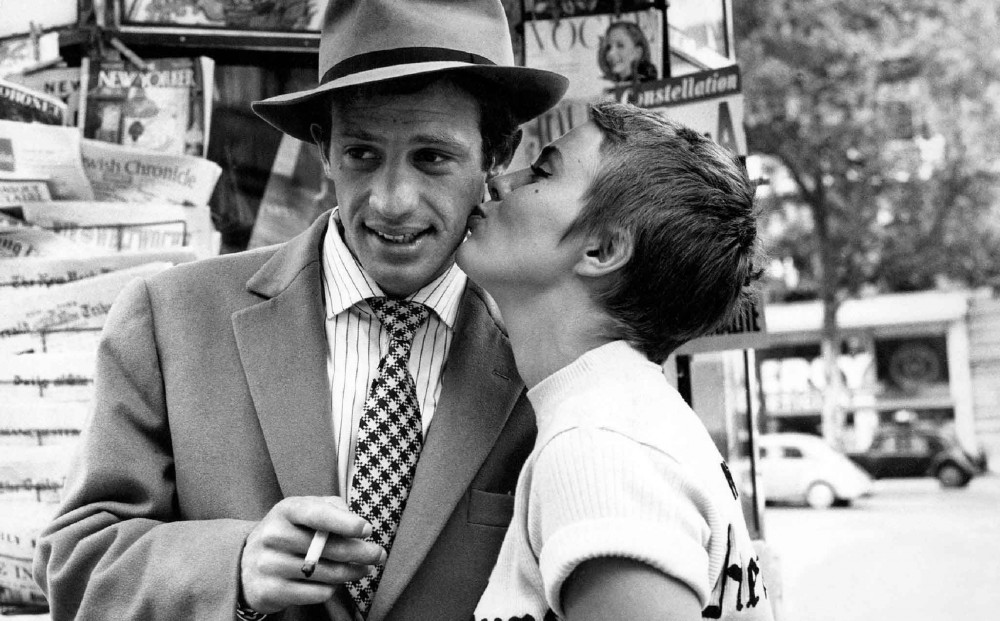BREATHLESS
9:30
Saturday, May 6
Directed by Jean-Luc Godard
(1959) “To become immortal, then to die.” Jean-Paul Belmondo on the run, shooting cops and stealing cars – and cash from the handbag of Herald Tribune-hawking girlfriend Jean Seberg. When the first edit came in at 3 hours, Melville – seen here as novelist “Parvulesco” spouting the above quote – advised losing the subplots, but JLG instead did the unheard of: cutting freely within shots; while the “je m’en fous” attitude proved the prototype of movie cool that every would-be cinéaste still aspires to. 35mm. Approx. 90 min.
Reviews
“As fresh and startling as it was 50 years ago!”
– Martin Scorsese
“There’s Potemkin, Citizen Kane, and this… Godard’s first film.”
– J. Hoberman
“No film has been at once so connected to all that had come before it and yet so liberating… [It’s] like high-energy fusion of jazz and philosophy. After Breathless, most other new films seemed instantly old-fashioned.”
– Richard Brody
“The camera lavishes black-and-white love on Paris, strolling up the Champs-Élysées, edging across café terraces, sweeping over the rooftop skyline, Mozart mixing with cool jazz riffs in the night air. The ultimate night-time Film Noir Noir Noir…”
– Time Out
“The atmospheric fatalism of the French gangster movie hot-spliced with the plot-driven fatalism of American Film Noir… It lit the fuse for the whole youth movement in cinema. Some of today’s young directors may not even know how indebted they are to Godard’s work; the fact remains that Breathless is where it – they – all began.”
– Phillip Lopate, The New York Times
“Soon after Breathless first appeared, not only were millions mimicking Belmondo’s own mannerisms but filmmakers began to imitate Godard. His footprints show up in everything from A Hard Day’s Night and Bonnie and Clyde to today’s sassy, bounding, nervously edited commercials for athletic shoes and blue jeans. In the seven years following Breathless, Godard created a run of movies that may be the greatest period of sustained brilliance in motion picture history. But his genius was already obvious in this lilting yet heartbreaking masterpiece which captures the lyricism and cruelty of city life, the easy amoralism of youthful impatience, the melancholy dead-end of male-female relations, the doomed romanticism of those weaned on old movies.”
– John Powers

